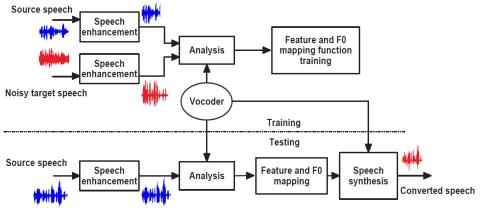
Evaluating Voice Conversion-based Privacy Protection against Informed Attackers
Speech data conveys sensitive speaker attributes like identity or accent. With a small amount of found data, such attributes can be inferred and exploited for malicious purposes: voice cloning, spoofing, etc. Anonymization aims to make the data unlinkable, i.e., ensure that no utterance can be linked to its original speaker. In this paper, we investigate anonymization methods based on voice conversion. In contrast to prior work, we argue that various linkage attacks can be designed depending on the attackers' knowledge about the anonymization scheme. We compare two frequency warping-based conv...

